Now more than ever, world-class customer service is essential for the survival of any brand. Companies around the world are looking to set themselves apart from the competition and win over customers in what is becoming an increasingly competitive landscape.
The truth is quite simple: Give your customers an outstanding customer experience (CX), and they’ll buy more, be more loyal, and share their experience with others.
A stellar CX has a plethora of benefits, from growing the customer lifetime value and reducing customer churn to enhancing the net promoter score and increasing sales.
The trick to providing an unparalleled CX is to ensure that your customer service employees have the right skills. But what skills do they need exactly?
Keep reading for our list of the 30 top customer service skills for 2022 and learn precisely what your team can do to hone them, win over more consumers and stand out from your rivals.
Contents
- Communication Skills
- Management Skills
- Technical Skills
- Problem-Solving Skills
- Personal Development Skills
- Infographic
1. Offer Clear Communication
Excellent communication skills are essential for showing customers you understand exactly what they’re talking about and building a great relationship that reflects positively on the company. Businesses often have multiple contact points with customers, which are an excellent opportunity to delight them, boost their confidence, and stand out from the competition.
84% of customers believe that the experience a company provides is just as necessary as its products and services.
How to Improve Communication:
- Personalize interactions by having customer service reps introduce themselves, address the customer by their name, and add as much personal touch as possible.
- Ensure that communication is concise. Customers want their problem resolved but also value their time, and so should you.
- Listen closely without interrupting the customer before providing solutions.
2. Be an Active Listener
As the foundation of effective communication, we cannot underestimate the importance of active listening, as this allows customer service employees to recognize, understand, and validate clients’ perspectives and feelings.
42% of companies don’t listen to or survey their customers.
How to Improve Active Listening Skills:
- Don’t interrupt customers or tune them out mid-conversation to look for a solution. Allow them to finish talking before responding.
- Ask as many clarifying questions as possible and focus entirely on the conversation.
- Focus not only on their words but also on their body language, inflection, and tone, as these can also reveal how the customer feels.
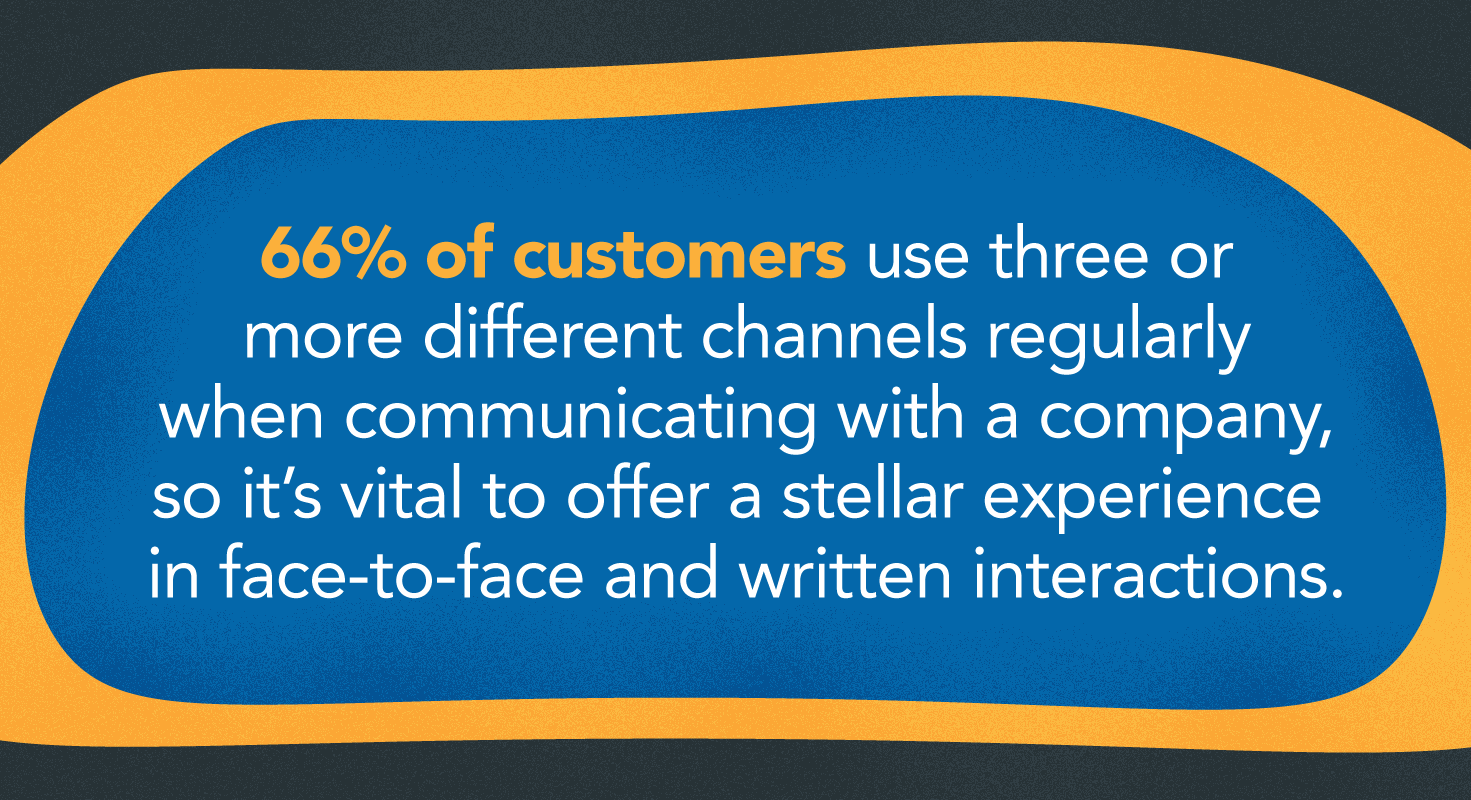
3. Develop Good Writing Skills
Customer service employees must be able to write well to convey nuances to clients and express policies or solutions to problems that boost the company’s trustworthiness. Someone who can share their thoughts clearly in writing, with proper grammar, will improve a company’s image and give it coherence.
66% of customers use three or more different channels regularly when communicating with a company, so it’s vital to offer a stellar experience in face-to-face and written interactions.
How to Improve Writing Skills:
- Use templates for the main written interactions with customers but give employees the freedom to personalize and adapt them according to the situation to create more proximity with clients.
- Optimize the subject line and make it stand out to ensure that people open your emails or correspondence.
- Always put the customer first in all communications and be clear, concise, and error-free.
4. Be Persuasive
Persuasion is important because it allows employees to positively influence and retain customers through connection, creative problem-solving, and engagement. When employed in the right way, it’s so subtle that customers don’t even realize they’re being convinced to do something.
Persuasive employees can boost company profits by 25% to 95% if they can increase customer retention rates by just 5%.
How to Improve Persuasion:
- Instead of telling customers what you’d like them to do, ditch the script and have an honest conversation with them that takes into account how they think and what they value.
- Lean into objections, as these reveal what the customer values. It will open up the chance to learn more about what exactly they’re looking for.
- Listen to understand and not just to respond. Choose words and tone very carefully with the intention of building trust.
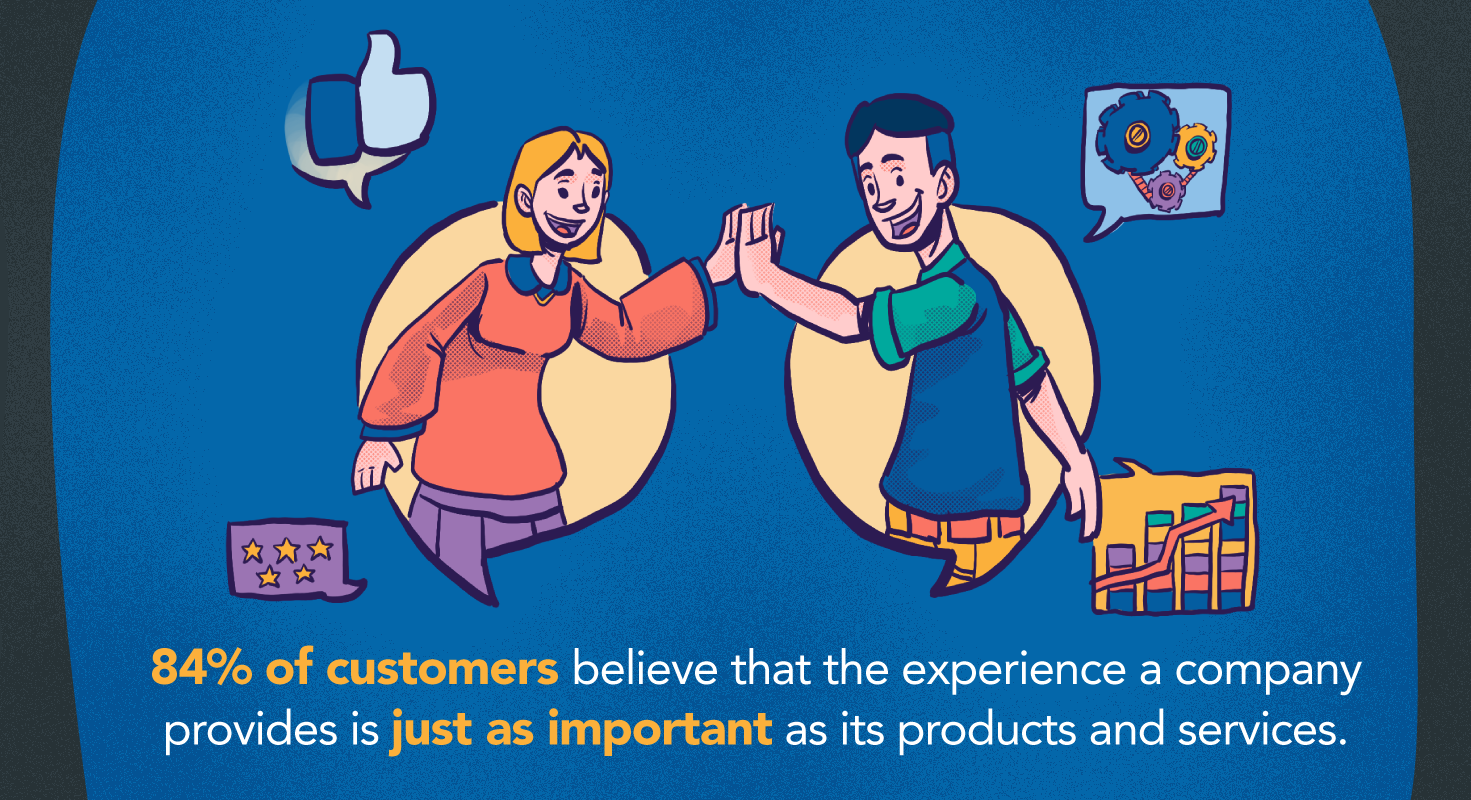
5. Be Able to Negotiate
A higher percentage of successful deals start and end with an agent’s ability to carry a negotiation from start to finish. Negotiation skills, which are extremely important in customer service, should ultimately be able to provide benefits for both parties. With the right negotiation skills, customer service reps can reduce churn and save companies money.
Acquiring a new customer can be between 5 and 25 times more expensive than retaining an existing one.
How to Improve Negotiations:
- Listen proactively to customers, so you don’t miss important details and can suggest appropriate solutions when negotiating.
- Ask the right questions as this will provide important insight into what the customer is thinking and move you closer to a solution.
- Set clear limits for negotiation so employees know exactly what they can and cannot offer customers to make them happy.
6. Show Empathy
Customer service representatives must understand not only the needs of the customers but also their emotional state, as both are essential for a successful outcome. When we show empathy, we can better connect with customers and understand where they’re coming from, which in turn boosts loyalty and satisfaction.
A survey conducted by Genesys found that 88% of customers want to feel like they’re being listened to, and 86% want agents to understand their needs.
How to Improve Empathy:
- Try to determine the customers’ states of mind through listening and allowing them to get all of their frustrations out.
- Reduce stress by validating and fully supporting their feelings, whatever they are.
- Reiterate the emotional words (frustrated, angry, upset) to acknowledge customers’ emotions while doing everything to resolve the issue.
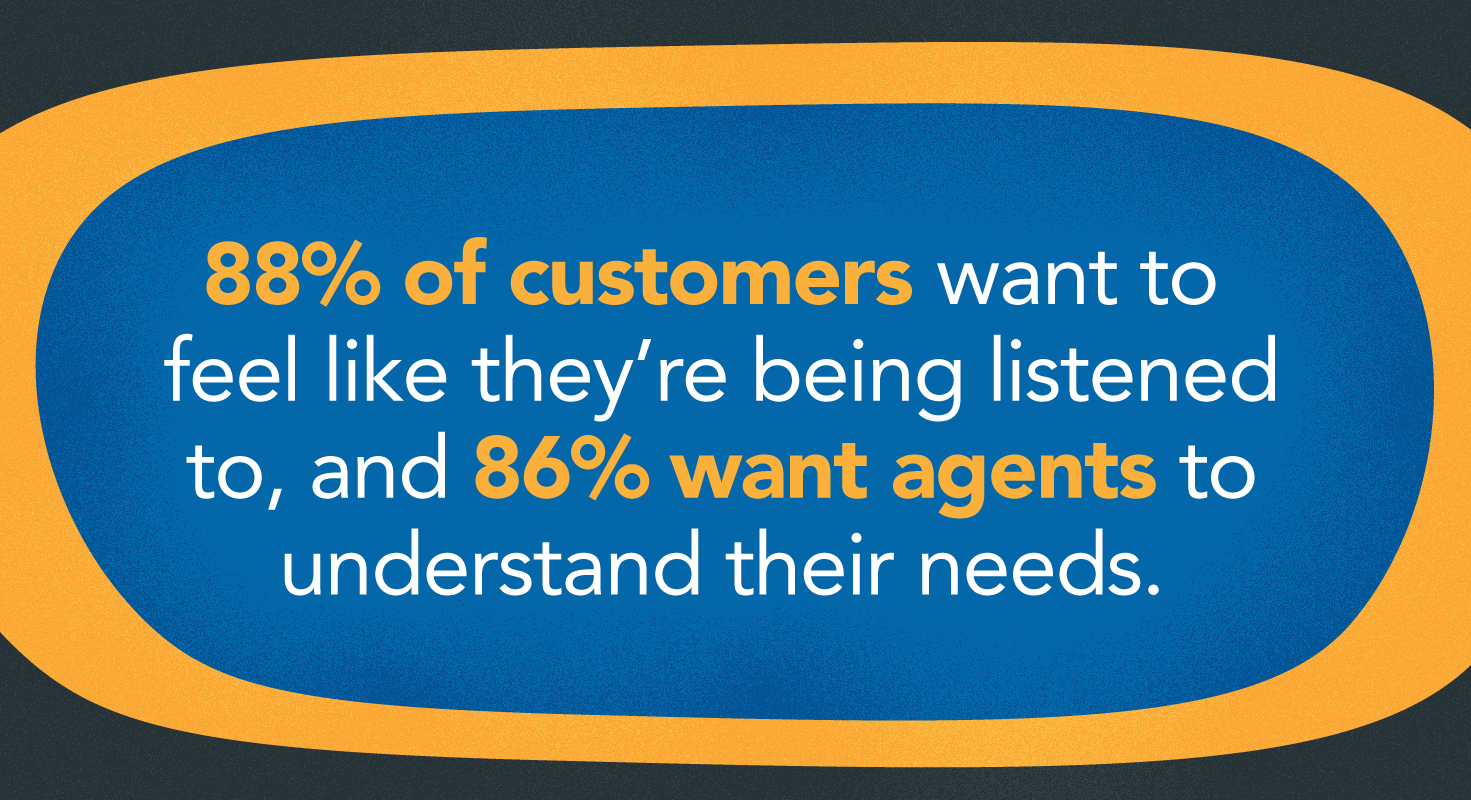
7. Personalize the Experience
Personalized interactions can make people feel like valued customers. When employees take the time to tailor the experience for the customers, it can create a stronger connection. Customers find such employees more accessible. You can comment on the weather or their buyer’s journey thus far—anything that can make customers feel like they’re doing business with a person and not just with a company.
A company can boost its online conversion rate by about 8% by personalizing consumer experiences.
How to Improve Personalization:
- Individually tailor your responses as much as possible, using your name and the customer’s name.
- Adapt the service to customers’ specific needs, expectations, and abilities.
- When connecting with customers, mention something specific about their customer journey or their history with your business.
8. Have In-Depth Product Knowledge
When clients and customers call for assistance with products or services, employees must be knowledgeable enough to understand the issues and propose solutions. Employees who can speak intelligently about the brand and have deep insight into the products can boost the company’s credibility, meet customers’ expectations, ensure loyalty and be better equipped to resolve unexpected issues.
For 30% of people, the most important aspect of a good CX is being served by a knowledgeable and friendly customer service agent.
How to Improve Employee Knowledge:
- Offer regular staff training to ensure that they know the products and services inside and out.
- Document your experts’ knowledge and create a database that is accessible to all employees.
- Create FAQs and tutorials regularly so that the staff can stay in the loop at all times, especially when products and services are modified.
9. Have Technological Know-How
When the team is well versed in the company’s tech, they’re better equipped to interact with customers and provide them with a more personalized experience. They can also handle problems more efficiently, and their expertise strengthens customer loyalty and the brand’s credibility with each customer interaction.
68% of customers believe that a pleasant customer service rep is essential for a stellar experience, and 62% consider customer rep’s resourcefulness or knowledge the most important factor.
How to Improve Technological Know-How:
- Ensure that employees attend the regular training sessions to keep apprised of technological changes at work.
- Encourage staff members to be open to new methodologies and give them the tools they need to do so.
- Incentivize employees who use new software and programs and learn new tech skills through recognition, handwritten notes, or PTO.
10. Master Time Management
Customer service employees need to be patient and thorough with customers. At the same time, they must also know how to manage their time and be productive. The better your time management skills, the more customers you can serve.
Only 17% of people track their time despite the abundance of time tracking apps, hints, and tips.
How to Improve Time Management:
- Delegate those tasks that don’t fall within your sphere of responsibility or add any value to the CX.
- Be assertive when talking with customers to ensure they don’t take up too much of your time so you can serve everyone as efficiently as possible.
- Look for ways to change or challenge the system at work if you feel that processes could be faster and better.

11. Ensure a Quick Response Time
People hate waiting, and when you solve their problems quickly, you’re definitely going to stand out from the competition. First call resolutions result in a positive customer service experience that boosts satisfaction and loyalty. If you’re speedy and reliable, you can expect to retain customers, which is excellent for your bottom line.
62% of people judge the quality of the customer experience (CX) based on the speed with which their problem is resolved.
How to Improve Response Time:
- Implement an automated customer service system, such as an online chat and automated voice response, so that people can get (near) instant answers to their questions.
- Make sure you have knowledgeable professionals ready 24/7 to address more complex issues.
- Put in place a system to measure and monitor key metrics related to response time to facilitate continuous improvement.
12. Be a Team Player
A customer service agent’s job is to solve problems, and collaborating and working as a team is an integral part of that. Working seamlessly with others allows team members to exchange ideas, develop creative solutions and be more productive and proactive.
Digital collaboration can boost productivity by 20% to 30% and unlock up to $100 billion in value. Hence, it makes sense for companies to foster teamwork and provide employees with the best tools.
How to Be More of a Team Player:
- Ensure that employees can communicate quickly and effectively by streamlining communication between different departments.
- Create customer personas and make sure everyone’s familiar with them so that everyone is on the same page when dealing with customers.
- Ensure that customer information is accessible to everyone, so if someone hands off a task to a team member, they can view customer history and background.
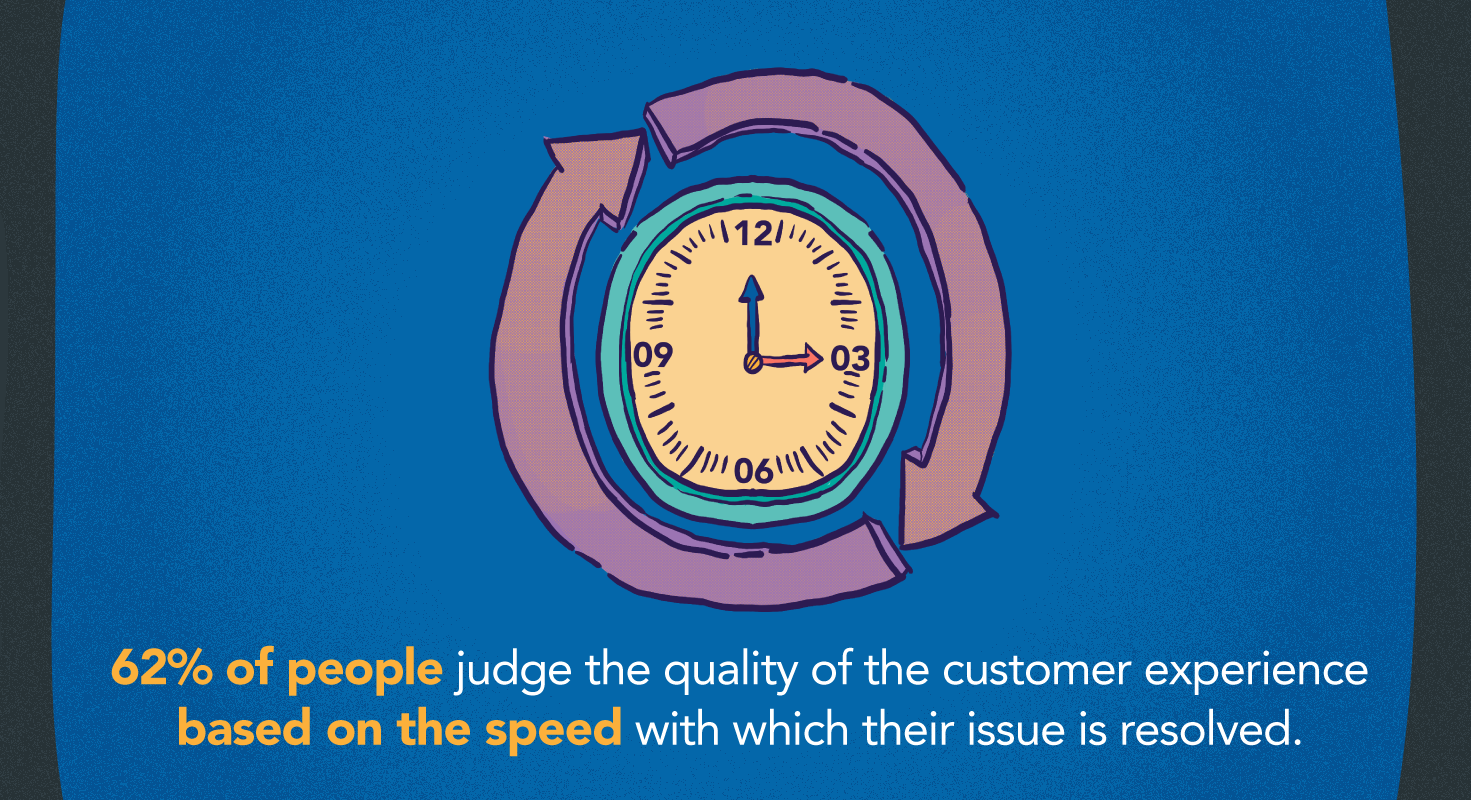
13. Have a Positive Attitude and Language
Staying positive in your interactions with customers can set the tone for the meeting and positively influence the customers’ attitude. By using positive language, the staff is able to show that they are willing to put themselves in the customers’ shoes and see things from their points of view.
Companies with superior customer service experience generally grow 4% to 8% more revenue than the market average.
How to Improve Your Positive Attitude:
- Try to approach problems as if they were a puzzle, with an open mind and from different perspectives.
- When you’re feeling negative or frustrated, take a short break to recoup and process those emotions so you can go back to your post with a fresh mind.
- Try to keep smiling as it can trick your mind into happiness and improve your mood automatically.
14. Have a Goal-Oriented Focus
When customer service employees understand the business goals they’re supporting, they are in a better position to find solutions to achieve those goals. Goal-oriented employees are more self-aware and organized, and they manage their time better.
34% of companies are now incorporating customer journey mapping into their customer service.
How to Have More of a Goal-Oriented Focus:
- Organize tasks by priority, as this will help employees work more effectively.
- Practice time management to ensure that agents can spend as much time as necessary with all the customers.
- Take larger goals and break them into smaller, manageable pieces and work towards them on a daily and weekly basis.
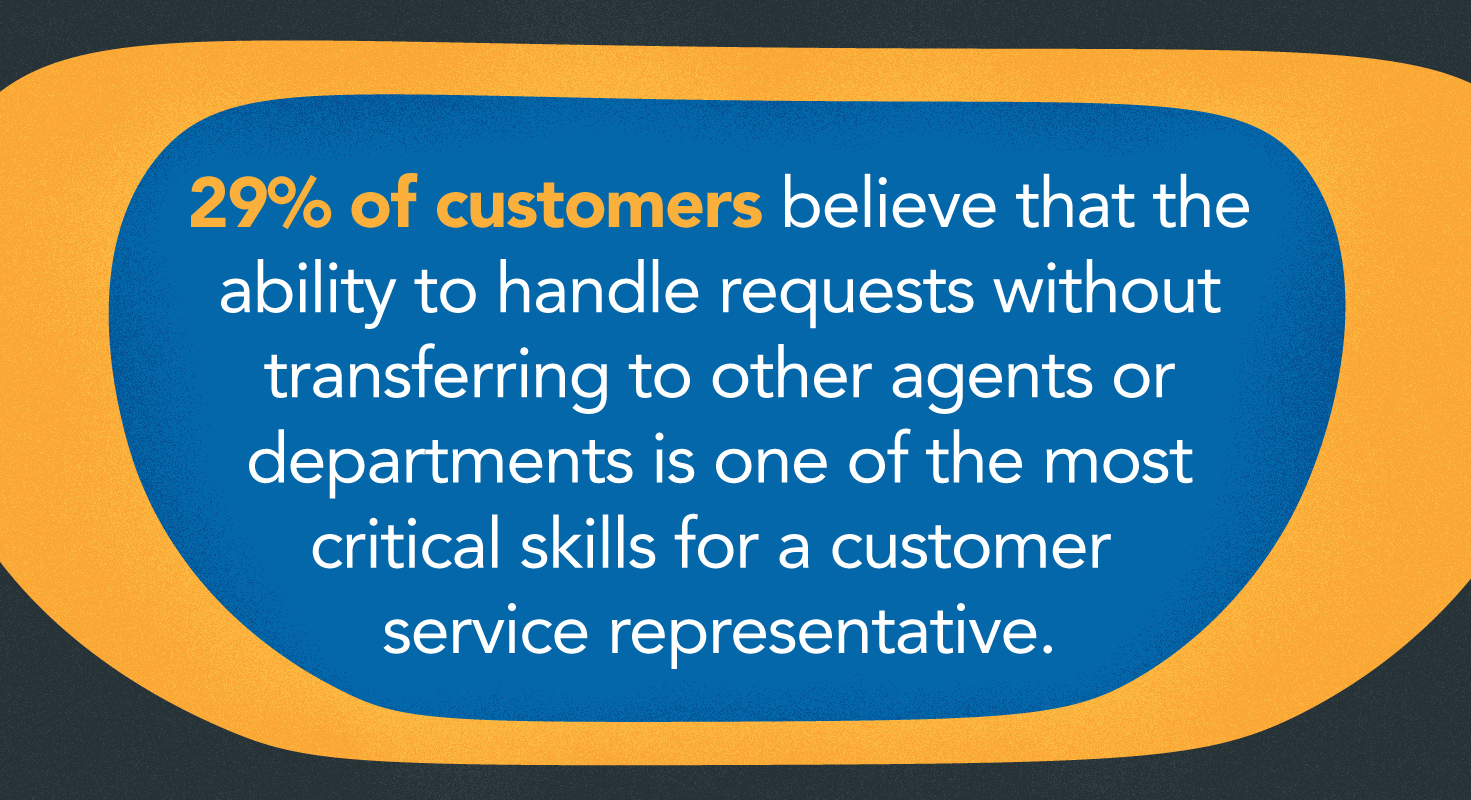
15. Have the Ability to Take Responsibility
Taking responsibility for a customer’s care is crucial to achieving that person’s satisfaction. When we become accountable and commit to helping someone, we form a connection and have the opportunity to offer a stellar CX.
29% of customers believe that the ability to handle requests without transferring to other agents or departments is one of the most critical skills for a customer service representative.
How to Improve the Ability to Take Responsibility:
- Make sure customer service agents have clear expectations about what they can and cannot take responsibility for, making it easier to deal with customers.
- Openly recognize mistakes and view them as learning opportunities.
- Ensure that agents have all of the resources they need to take responsibility and assure them that they can ask for any tools and resources they need without any inhibition.
16. Be Resourceful and Creative
Customer service representatives who can come up with more than a single solution to a problem are an asset to any company. Thinking creatively to keep customers happy is an outstanding skill. Companies must give employees leeway so they can come up with solutions on their own.
Organizations in the service sector with more creative employees see higher levels of customer satisfaction.
How to Improve Resourcefulness and Creativity:
- Become fully involved with each customer to fully understand their problems and brainstorm out-of-the-box solutions.
- Make sure there’s time to explore and learn, as this makes for more imaginative problem solvers.
- Don’t be afraid to introduce new ideas by challenging traditional approaches to work processes.
17. Be Quick to Adapt
Customer service agents must listen to complaints and handle aggressive language or tones and still be able to establish credibility and rapport and work towards a solution quickly. Rolling with the punches and pivot quickly allows them to help customers more effectively and efficiently, and it also gives them control over the situation without reducing the customer’s power.
83% of customers feel more loyal to brands that respond to their complaints and resolve them amicably.
How to Improve Adaptability:
- Learn how to sense customers’ moods and adapt accordingly to ensure a seamless support experience.
- Collaborate with other available resources and departments to find solutions for customers.
- Keep an open mind to new ways of doing things, even those suggested by customers, and pivot when necessary.
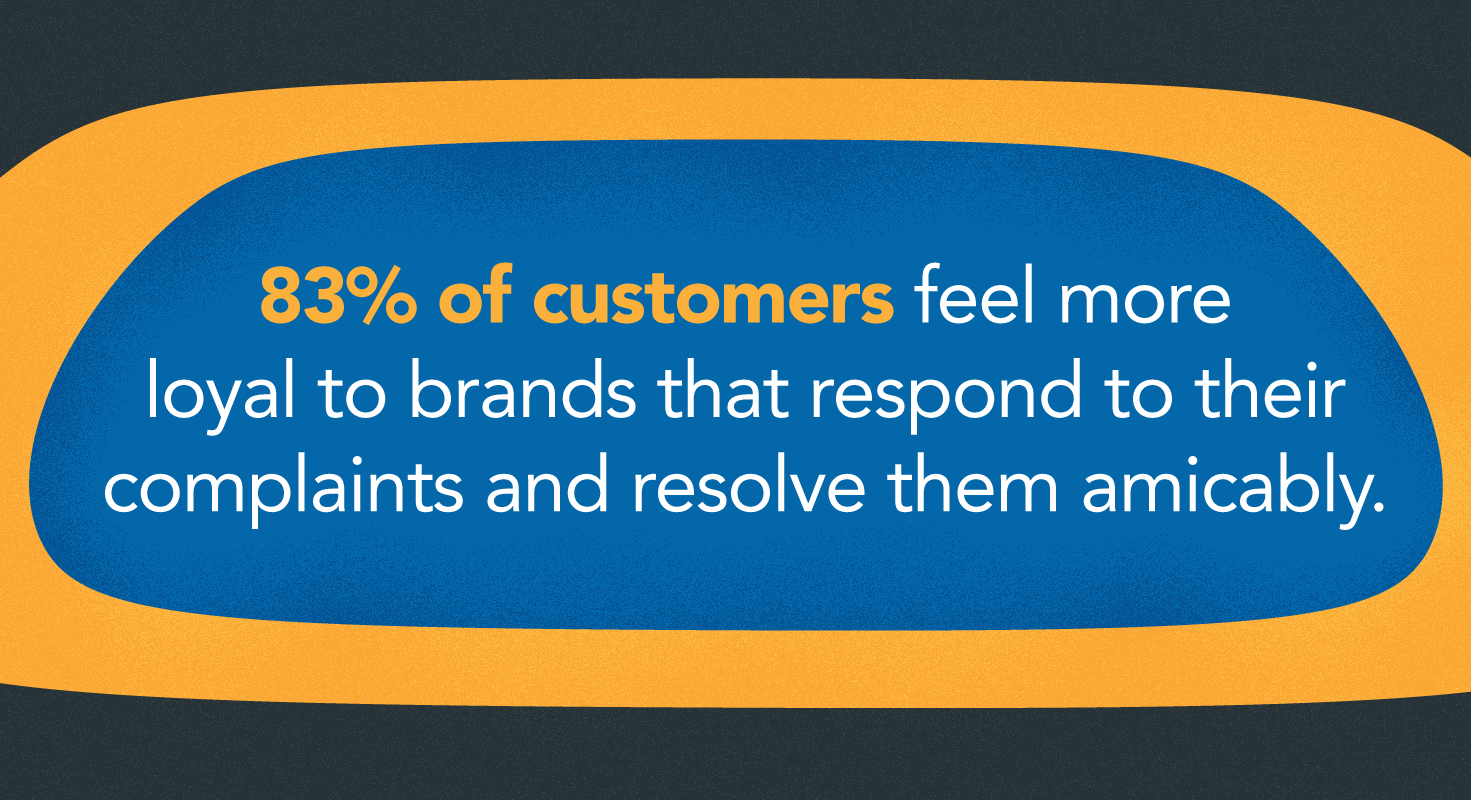
18. Be a Problem Solver
When we resolve customers’ problems, we develop rapport with them. Being committed to solving their problems, especially the first time around, reflects the company’s morals, ethics and values, and allows you to repair flaws, improve performance, and innovate.
72% of consumers say that explaining their problem to multiple people is poor customer service, and after a bad experience, customers tend to avoid a company for around two years.
How to Improve Problem Solving:
- Help your staff practice their problem-solving skills by taking real-life scenarios and applying them in a test environment so they can practice.
- Once a problem has been resolved, analyze the results and ask for customer feedback to apply the same solution to similar future scenarios.
- Have staff brainstorm possible solutions and offer the best of them to the customers to choose from, thereby empowering and involving them in the process and outcome.
19. Be a Critical Thinker
Critical thinking helps customer service agents identify informed solutions. When they are reflective and independent, they can logically connect ideas, evaluate arguments, and identify inconsistencies—all of which are extremely valuable for companies.
One-third of consumers believe that the most important aspect of a good customer service experience is to have their problem resolved in just one interaction, regardless of how long it takes.
How to Improve Critical Thinking:
- Engage in research to find alternative, out-of-the-box solutions to problems.
- Try to break customers’ issues down into smaller, more manageable pieces to better identify the root cause of a customer’s problem.
- Develop foresight to predict potential outcomes to a customer service resolution, both positive and negative.
20. Exercise Attention to Detail
Before setting the customer on a resolution course, identifying their core and peripheral issues often requires asking a series of laser-focused questions. Paying close attention reflects the company’s competence, attitude, and commitment to serving its customers.
52% of customers believe that companies are generally impersonal.
How to Improve Attention to Detail:
- Always take the necessary time to input customer information correctly and accurately.
- Follow scripted questions to obtain all of the vital information, and practice active listening.
- Avoid multitasking when dealing with customers as this can cause distractions and will make agents less attentive.
21. Have Patience and Compassion
Being patient allows employees to determine what customers want and how to serve them best. It’s particularly crucial when dealing with angry or dissatisfied people. When employees can put themselves in the customers’ shoes and respond with patience and compassion, they can de-escalate complicated situations and win customers over.
72% of customers will share their positive experiences with six or more people.
How to Become More Patient and Compassionate:
- Engage in breathing exercises as it calms down the nerves and nourishes the brain, making it easier to deal with angry customers.
- Repeat the information shared by the customers back to them to confirm it and validate their feelings.
- Make sure employees know their triggers and are attuned to their own body language so they can stay calm or identify when to ask a colleague to take over for them.
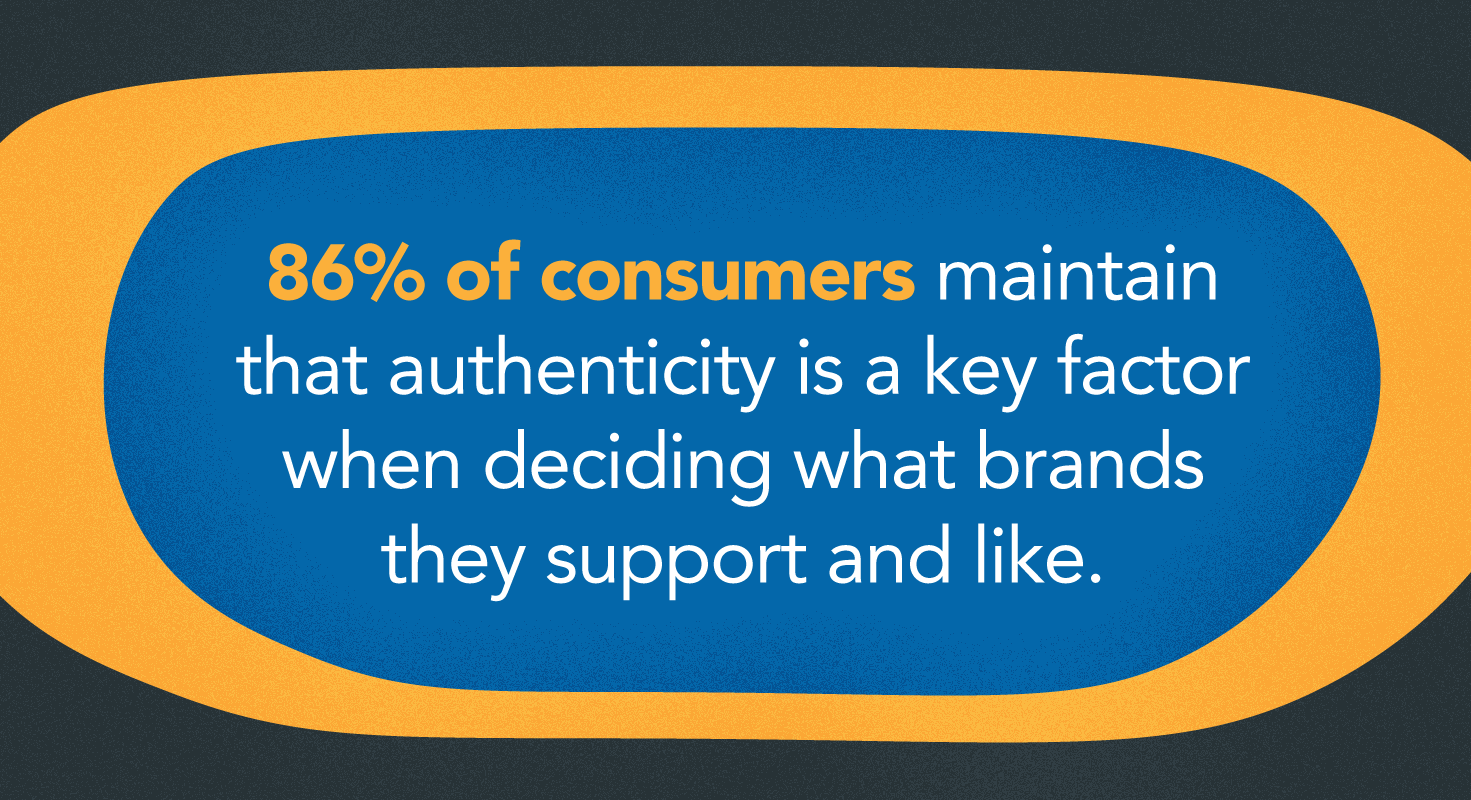
22. Be Authentic
When you’re authentic, you’re also enthusiastic and welcoming, and customers can typically spot it when you’re faking it. When you create a genuine connection with customers by being honest, you build trust.
86% of consumers maintain that authenticity is a key factor when deciding what brands they support and like.
How to Improve Authenticity:
- Don’t use a script; let customer service reps be themselves and follow guidelines if need be, but don’t turn them into robots.
- If an employee doesn’t know the answer to a question, be honest—it goes a long way and humanizes them.
- Make sure that the marketing strategy does not manipulate, include gimmicks, or is disingenuous as this damages authenticity.
23. Have a Thick Skin
Customer service involves dealing with angry customers, and having a thick skin is imperative, so you don’t take everything to heart or feel stressed. Although some people will be rude, it’s essential to stay focused on the task at hand to do the job efficiently and effectively.
35% of people have become angry when talking to customer service.
How to Improve Unflappability:
- It’s essential to keep in mind that sometimes customers will lash out, and it’s because they’re frustrated; it has nothing to do with you.
- Try to remain friendly, polite, and helpful and use as much empathy as possible to calm the customer.
- Work to keep anger under control and, as a general rule, don’t hang up on anyone.

24. Have a High EQ
Customer service employees with high emotional intelligence are in a position to have better communication with customers. They’re able to connect more with the customers and manage conflict in a better way. As emotions are often contagious, customer service staff can set the tone for interactions and determine how customers feel about them and the company.
Emotional intelligence is the single-largest predictor of workplace performance, and 90% of top performers also had a high EQ.
How to Improve Emotional Intelligence:
- Employees should strive to build rapport with customers, even if they have to over-communicate to make that connection.
- Customer service agents who share some personal information or anecdotes will have an easier time connecting with customers.
- Ensure that employees know how to actively listen to customers by listening to what people have to say and then repeating their concerns or issues back to them.
25. Be Tenacious
One of the best ways to win over unhappy customers is to resolve their issues and stop at nothing short of their complete satisfaction. This drive to find a successful solution to a problem and the motivation to go above and beyond will reduce customer churn and increase loyalty and satisfaction.
On average, companies working to improve the customer experience can see a 10% to 15% increase in revenue.
How to Improve Tenacity:
- Since dealing with customers can wear employees down, help them maintain their motivation by recognizing their effort and hard work.
- Offer a reward system for those agents who go the extra mile to solve people’s problems.
- Support employees’ wellness by organizing stress management workshops and encouraging professional care if needed.
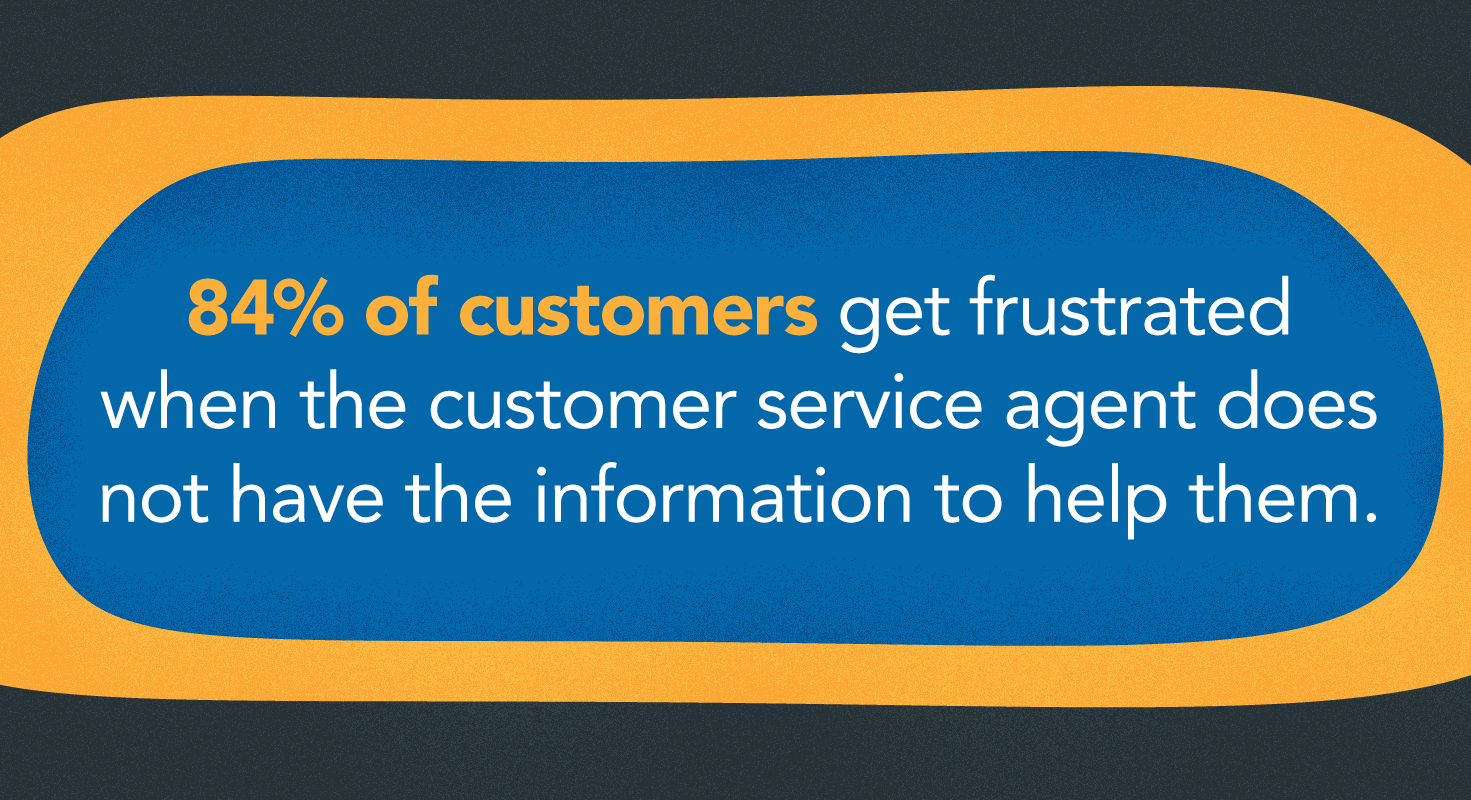
26. Be Dependable
Being dependable and responsive helps build trust. When customers come to feel like they can rely on you, they’re happier to buy from you because they know you’ll have their back if anything goes wrong. If the customer service team regularly meets customers’ needs, they will view the brand as reliable and are much more likely to continue to use their product and/or service.
84% of customers get frustrated when the customer service agent does not have the information to help them.
How to Improve Dependability:
- Endeavor to manage customer expectations to provide consistent service. If requests and expectations are unrealistic, it may be impossible to deliver on them.
- Ensure that there is strong communication between departments working together to resolve a customer’s problem.
- Make sure employees follow checklists and templates so that everyone can offer consistent service to the customers.
27. Practice Self-Control
Maintaining self-control is critical for success, especially when angry clients may be pushing your buttons. How you respond will impact the outcome of the interaction, and if you lose control of your emotions, you will most likely lose the customer.
70% of buying experiences are based on how customers feel like they are being treated. If they feel attacked, their experience is going to be negative.
How to Improve Self-Control:
- Listen to customers and let them finish speaking. Then take a minute to think about how you would like to be treated and helped in the same situation.
- Hold back the urge to lash out at angry customers, especially if they’re wrong or overreacting. Take a break if needed, or practice breathing and relaxation exercises.
- Go for a brisk walk around the block. Science shows that short bouts of exercise can improve our ability to control ourselves.
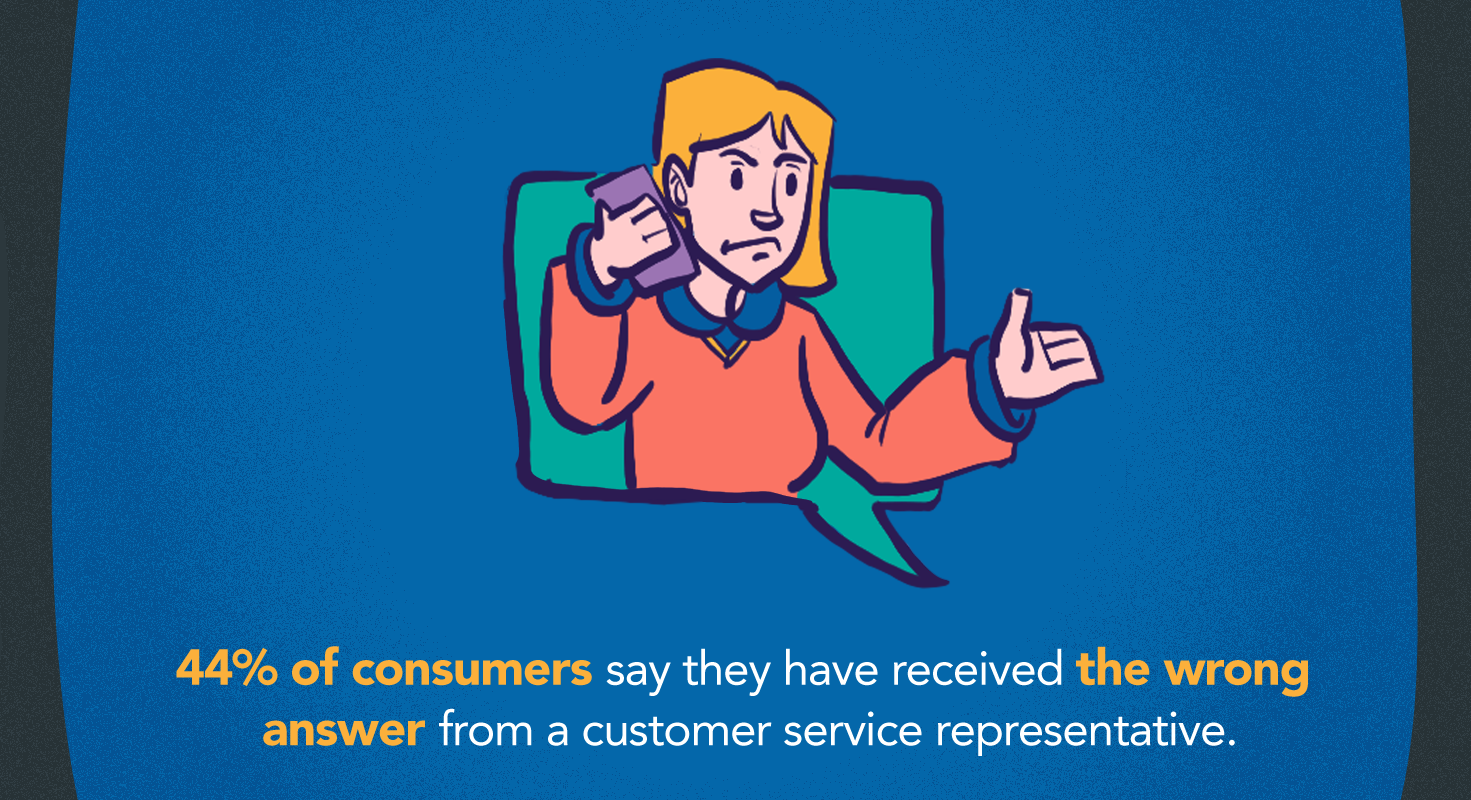
28. Have a Desire to Learn
Employees need to be willing to grow and improve. Otherwise, they will be stagnant and so will the company. When they’re eager to learn the ins and outs of all of the products and services, how to follow processes, and how to communicate better, they will be able to serve customers better.
44% of consumers say they have received the wrong answer from a customer service representative.
How to Improve the Desire to Learn:
- Embrace technology. Learn how it’s impacting the industry and can make the job easier or more productive for employees.
- Actively seek out learning and development opportunities to grow professionally. Often companies will pay for training the employees.
- Ask lots of questions and be curious. Question current systems and pitch new ideas and solutions to managers.
29. Have Humility
Showing humility during customer interactions can help develop trust. Being honest and humble helps create a connection with clients, and taking ownership of mistakes shows honesty, morals, and authenticity.
78% of consumers will do business with a company after it has made a mistake if the customer service is excellent.
How to Improve Humility:
- View (and welcome) poor customer feedback as an opportunity to correct mistakes and grow from there. Make sure to apologize when appropriate.
- Always give customers easy-to-understand, jargon-free responses and never brag.
- Provide employees with training and coaching on how to deal with customers, especially the irate ones, to build relationships and enhance the company’s reputation.
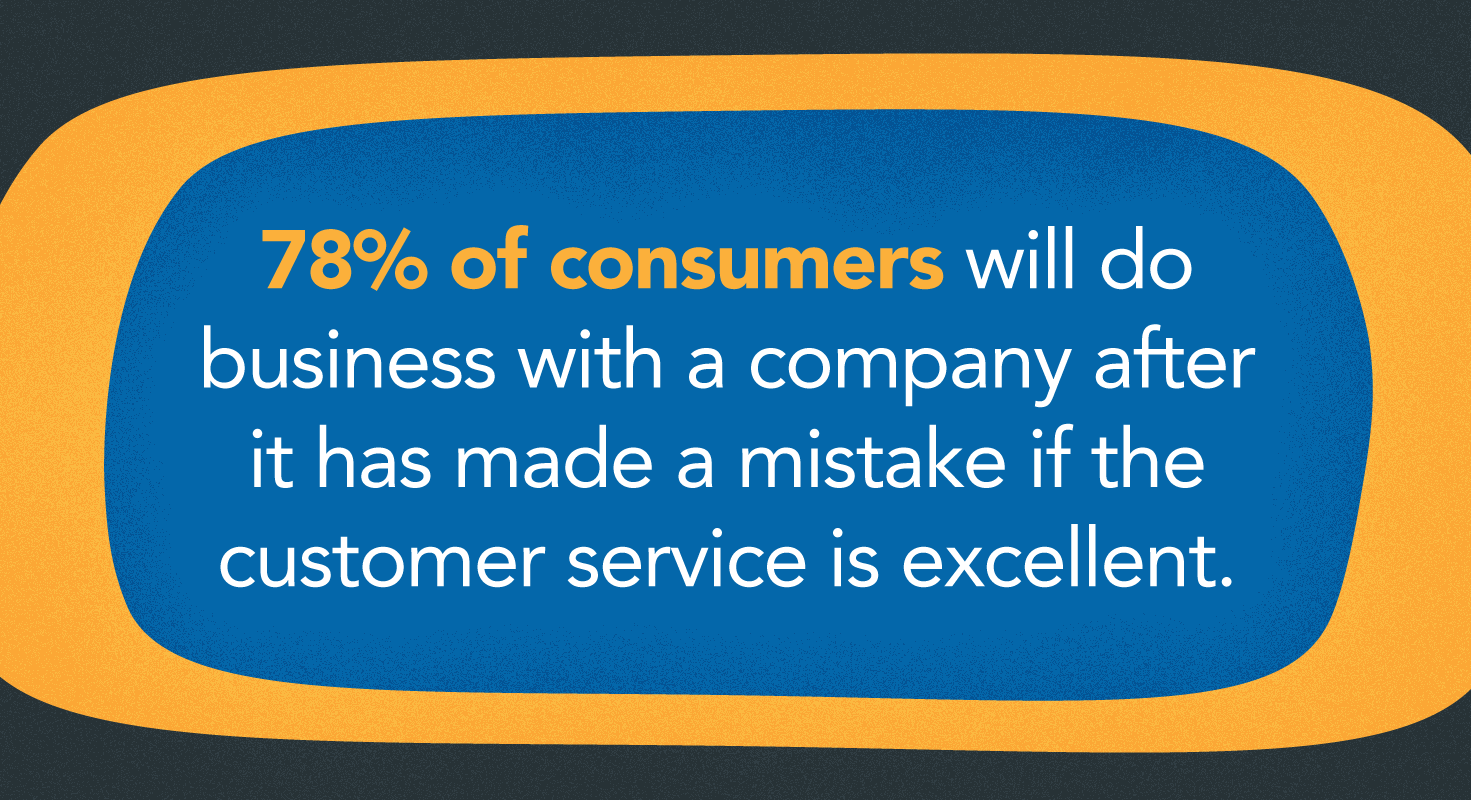
30. Be Attentive
If customer service employees have checked out, there’s a good chance that customers will too. Employee engagement is essential for stellar customer service. When staff are present and provide customers with their full attention, they feel heard and seen and can sense that you care about them.
82% of customers feel more loyalty to those brands that respond to, and resolve, their complaints.
How to Improve Attentiveness:
- Customers won’t necessarily tell you exactly what they need, so it’s essential to learn how to read them and determine their emotional state.
- Listen actively with no interruptions and ask follow-up questions to ensure that the customer feels heard and you understand them clearly.
- Send personalized offers to clients as this shows them that you’ve been really listening to them and you understand their needs.
Training the customer service department and supporting their professional development makes perfect sense because their performance is critical. They take care of customers, and without those customers, there would be no business.
At present, more than 66% of companies compete on the basis of customer experience, compared with just 36% in 2010, so if you’re not already focusing on your CX department, you may want to reconsider.
It’s not just about good customer service anymore; you really have to go above and beyond and offer exceptional service if you want your brand to thrive truly. A great starting point is ensuring that your employees excel at these 30 customer service skills.
Infographic









